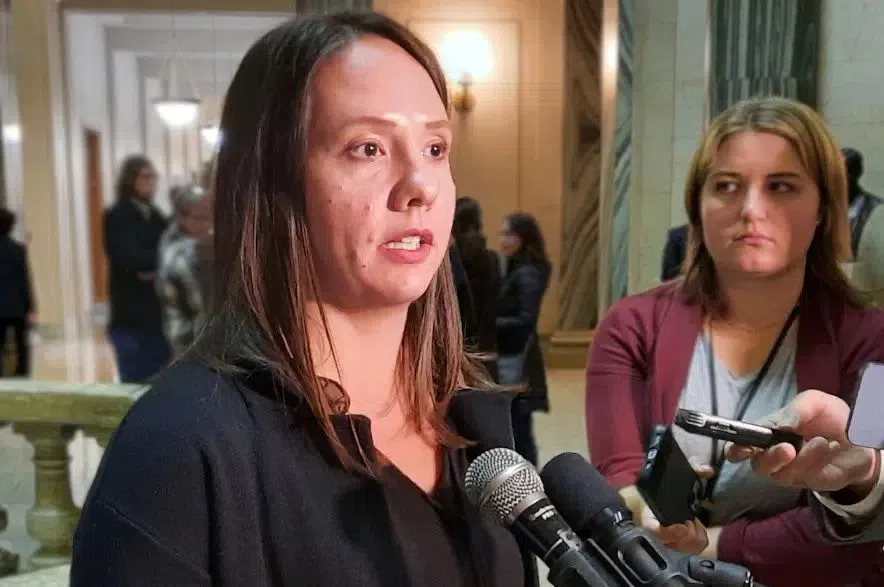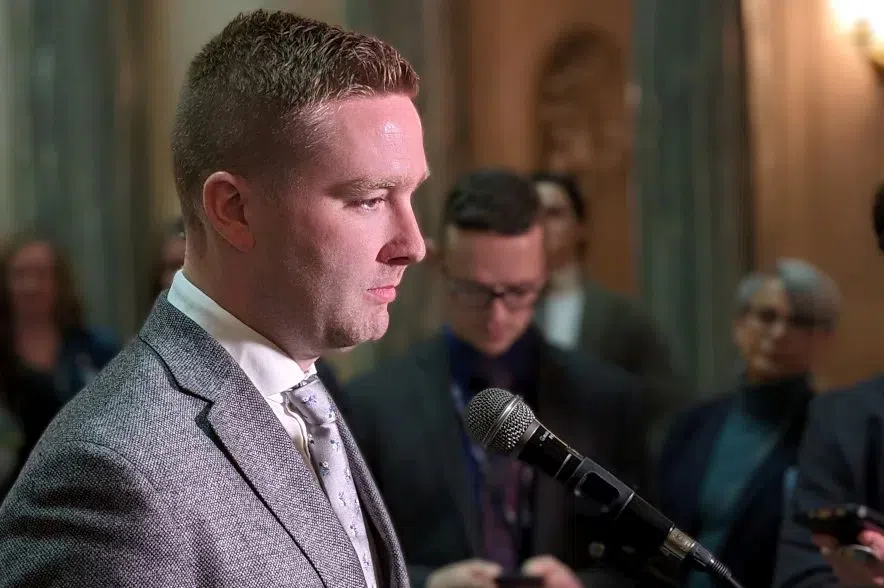Saskatchewan teachers want more from the government to resolve a months-long contract dispute, following a resounding “no.”
On Thursday, the Saskatchewan Teachers Federation’ announced that its members overwhelmingly voted to reject a contract offer from the provincial government. Federation president Samantha Becotte said she isn’t surprised that 90 per cent of teachers voted against the government’s latest offer, which included an eight per cent pay increase over three years.
“A lot of the messaging that was coming out is exactly what came out in the vote,” Becotte said.
“It wasn’t enough. It didn’t go far enough to address the needs of students. There was really no assurances that experiences were going to improve.”
Struggles with class size and classroom complexity – the number of students who require additional help – have been a sticking point throughout the negotiations. But even with millions of dollars earmarked in the provincial budget to help address issues, Becotte said school divisions don’t believe it won’t be enough.
“They’re already forecasting that they will struggle to maintain the status quo or will be having to make further reductions to programs and supports. Even at a status quo, it’s not enough,” she said.
“Our systems are in crisis, and students are not getting the support that they need in classes, and teachers are feeling that, and they’re ready to stand up for their kids, and they showed that.”
Becotte said it is not just about classroom support. Wages are still part of the conversation.
“I know the government likes to frame that teacher salaries in Saskatchewan are above the western-Canadian average, but they really are cherry-picking specific classes and groups of teachers based on their education,” Becotte said.
“If we look at all teachers across Saskatchewan, if we look at the starting rate compared to other western-Canadian provinces, we’re at about four-and-a-half per cent below where other provinces (are), and at the top end range we are at about, I think, three-and-a-half per cent below where other provinces are.”
A billboard campaign by the provincial government last year said the average Saskatchewan teacher earns $92,000 per year, ahead of the western Canadian average of $90,300.
Becotte said she hopes the government and the Saskatchewan School Board Association are reflecting on the message sent by the teachers’ vote.
“Reflecting on what this message means looking at what they can do to come to the table in good faith and actually start negotiating,” she said.
“We have been in this process for a year, and I don’t think we have had any real negotiations at the table on those two priority issues around working conditions, our student learning conditions, and teacher compensation.”
Becotte said she remains hopeful they can get a deal hashed out at the bargaining table.
Education Minister responds to contract vote results
Saskatchewan Education Minister Jeremy Cockrill said he’s disappointed but not surprised following the resounding rejection of the government’s offer.
“I’ve heard directly from teachers over the last several weeks. I’ve had the opportunity to visit several schools in different communities all over the province and hear directly from teachers,” he said.
But despite the results of the vote, Cockrill said his stance on certain issues won’t change.
“I’ve been clear right from the start. Class size and complexity do not belong in the provincial agreement, and that continues to be the government’s position,” the minister said.
Pointing to teachers’ compensation, Cockrill said he believes the latest offer was fair, and would have handed teachers around $2,000 in back pay.
“We’ve seen several tables around the province already ratify at those numbers,” he said.
“Our Saskatchewan teachers are at or above the western-Canadian average for teachers. We live in a very affordable province, and this deal would keep them ahead of that.”
Cockrill said he is eager to have conversations next week with the federation to talk about the results of the vote and how to move forward.
“There’s going to be an opportunity to have discussions next week between both bargaining committees, just understanding the feedback from teachers through this vote and understanding kind of where we sit as contextual perspective now, and then what are some potential paths forward from the (federation’s) perspective,” Cockrill explained.
He said he’s hopeful the talks will bring both parties back to the bargaining table as soon as possible.
“I think we both want a resolution to this, and we want to provide some stability for teachers, but also students and families around the province,” said Cockrill.
“I think we owe it to our kids to get back to the bargaining table and try and find a way through this.”
Cockrill added that he does not want to extend the school year, but said students’ education is the top priority.
The comments come after Premier Scott Moe suggested that if more job action does occur and mandatory instructional hours are not reached, summer school could be the reality for Saskatchewan students.
“At the end of the day, we have to make sure – as government and with school boards as well – that our children are receiving the quality of education that we expect in Saskatchewan,” said Cockrill.
“Part of that is ensuring kids have the opportunity to be in the classroom, and there’s no doubt that even through the work-to-rule sanctions, instructional time has been affected in several divisions, so it’s a conversation that we’re looking at very closely in the Ministry of Education.”












